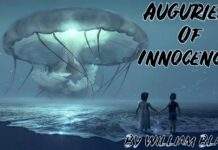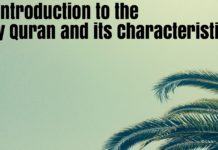Theme Of Violence In Ted Hughes’s Poetry
Viciousness, PAINFUL, BUT ALSO A GUARANTEE OF ENERGY:
Table of Contents
Viciousness, and fierce savagery at that, are absolutely one of the predominant topics in the verse of Ted Hughes. This artist is captivated by brutality; he is entranced by a wide range of savagery viciousness in affection just as in disdain, savagery in the wilderness, viciousness in the field, savagery in a fight, and viciousness as murder and abrupt passing.
However, in Hughes’ eyes, savagery however agonizing and all the time lethal is additionally an assurance of energy and of life. At the point when Hughes looks confined puma, hustling incensed through presences, he discovers triumph in the monster’s untamed will: “His Wis unsettled areas of opportunity.” The enclosure is no anymore a pen to this monster than a jail cell is to a visionary or an optimistic visionary. The monster and visionary are connected together by Hughes in light of the fact that the desire of the two of them wins over the conditions in which they exist. In The Martyrdom Of Bishop Farrar, Hughes goes further and discovers a win in a snapshot of suffering. Here we find that the fire consumes the muscles and the bones of a man however that his soul rises better than his torment. The diocesan’s triumph is one of unadulterated apathy, making in the flares an ageless snapshot of magnificence. The soul of the man keeps on living long after his substance has been devoured.
Savagery, DEPICTED IN THE ANIMAL POEMS
The topic of savagery finds a most striking articulation in the creature sonnets of Hughes. The Jaguar, Second Glance at a Jaguar, Pike; Hawk Roosting; Thrushes-these are generally sonnets portraying the cold-bloodedness, the furiousness, and the brutality which are indistinguishable from the universe of Nature. Hughes sees much more unmistakably and unambiguously than Tennyson; “Nature red in without holding back.” In The Jaguar, for example, we are made to picture a monster rushing angered through jail obscurity, not in fatigue, but rather with a step that speaks to immense, boundless opportunity. By diverging from the wildness of a confined puma, the boa constrictor’s curl is a fossil. In Pike, we are informed that the pike-fish are “executioners from the egg”, implying that their executioner sense is fundamental to their tendency. A pike-fish would execute and gobble up one of its own clans in the event that it can get nothing else to fulfill its craving. “What’s more, undoubtedly they save no one,” implying that the pike-fish make no differentiations with regards to eating. No artist of the past had the option to pass on the deadliness of Nature with such economy and such impact as Hughes has done through these sonnets. In Hawk Roosting, the winged animal says to himself: “I murder where I please in light of the fact that it is all mine.” And he further says; “My habits are detaching heads.”
In Thrushes we read that these winged creatures move about with “a ricochet and a cut” to grasp some creepy crawly in the zone and that they do as such immediately or dithering. The brutal craving of the thrushes helps the artist to remember the sharbin mouth which nibbles its own tail. The thrushes have a “projectile and programmed reason” which affects them to achieve their merciless capacity.
Savagery IN BATTLE AND WAR
At that point, there are different sonnets portraying pitilessness and savagery. There is the Bayonet Charge in which we read about the “shots smacking the tummy out of the air” and of “a green fence that stunned with rifle discharge.” Later in the sonnet, we are made to envision a fighter “plunging past with his knife toward the green support,” and overlooking the lord, honor, human respect, etcetera. At that point, we have the sonnet Six Young Men which is about a photo of six youngsters who went to the war and were totally slaughtered. Sadness for Dead Soldiers is another sonnet about the passing of warriors in real life, each fighter biting the dust with a different demise. Obviously, in both these sonnets the passing’s portrayed as courageous just as appalling; and both these sonnets stimulate our pity and misery. Be that as it may, in the two of them the remorselessness and the viciousness are kept in the front line.
The PSYCHOLOGICAL BASE VIOLENCE IMAGERY IN TED’S POETRY
One of the pundits, John Lucas in his Modern English Poetry, has communicated the feeling that verse should face challenges since the verse is a “dangerous craftsmanship.” According to this pundit, the main English writer who satisfies this condition is Ted Hughes who appears to him have kicked off something new by managing the dull, clairvoyant, fierce powers inert in present-day life. Despite what might be expected, M.G. Ramanan has communicated the view that Hughes’ vicious symbolism in his sonnets shows the continuation of the imperialistic feeling of intensity among the English public. As indicated by this Indian pundit, Hughes. fierce symbolism is firmly aligned with dictator governmental issues. It is critical in this setting that Hughes was delegated the Poet Laureate by the administration of Mæş. Thatcher was a tyrant Prime Minister.
Regardless, no one questions Hughes’ verse, both at its best and most exceedingly terrible, showing a distraction with brutality. The sonnet Thrushes starts with an image of the frightening thrushes in the yard. Of course. Hughes has the privilege to compose a sonnet, for example, shrubberies on the grounds that through it he can investigate the desire for force and savagery which is important for the narrative of 20th-century experience, and maybe of all human experience.

Absolutely, Hawk Roosting is about the self-love of a determined worry with a viciousness that looks for no legitimization for itself. The falcon in this sonnet says that nothing has changed since his life started, that his eye has allowed no change, and that he will keep things like this. The falcon’s view may appear to the peruses to be crazy, yet that is the perspective of the bird of prey, and definitely this perspective. mirror the perspective of numerous legislators and numerous administrations who are similarly crazy in their reasoning.
Savagery AS AN EXPRESSION OF IDENTITY
Be that as it may, it isn’t just the presentation of savagery that intrigues Hughes. At the core of a lot of his verses is savagery as an unadulterated articulation of soul, and brutality as a statement of personality. In this association, the end lines of the sonnet Pike are huge. The lake where the storyteller in this sonnet fished was “as profound as England.” This lake held pike “too enormous to even think about stirring”, so massive and old that after dusk he tried not to keep fishing. A dimness delivered by the haziness of the night appeared to him to be rising gradually towards him. In these lines, the murkiness is communicated through the ravenous pike. The storyteller’s fantasy here is a fantasy of brutality. This isn’t without a premise in light of the fact that the England public has consistently been more forceful and war-like than they might suspect, and the colonialism which our Indian pundit has discussed regarding Hughes is truly dear to the core of England.
Different ASPECTS OF THE VIOLENCE IN HUGHES’S POETRY
Hughes positively is by all accounts underwriting this savagery and the dominion that it appears to pass on. Through his photos of the merciless ruthlessness of the thrushes, the sell, and the pike, Hughes is by all accounts saying that there is no option in contrast to this brutality. Furthermore, Hughes is exceptionally skillful in dealing with this topic in light of the fact that the very style of these sonnets suits the subject. But there is something frightful about Hughes’ utilization of feathered creatures and fish to manage issues as perplexing as the set of experiences and utilization of intensity, authority, and brutality. Hughes regularly does such a thing. In the sonnet called Thistles, for instance, he portrays the plants as “like pale hair and the gutturals of tongues/Everyone deals with a tuft of blood.” The thorns become an analogy for England’s Viking legacy which comprises weaponry and fighter dom. Furthermore, nothing has changed since those plants developed: “Their children show up/Stiff with weapons, retaliating over a similar ground.” This sort of anxiety of brutality idle in English history isn’t without some avocation. As per a prominent pundit, A.E. Dyson, the nature of savagery, which a considerable lot of English writers investigate as moralists, is introduced in Hughes’ sonnet in a way that makes us more alive to what certain powers in present-day legislative issues and life truly are.
NOTHING MONOTONOUS ABOUT HUGHES’S CONCERN WITH VIOLENCE
In any case, we disagree with the feeling that Hughes’ constant worry with savagery is tedious, or that it turns into a type of impediment to Hughes in the composition of his verse. In every single one of the sonnets manages the subject of brutality or portrays viciousness in one structure or the other. Hughes demonstrates himself to be an incredible and talented creator of important pictures, and tight, pressed lines.
Write A Note On Ted Hughes’s Nature Poetry


























